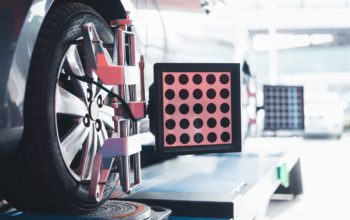It is crucial to ensure the safety of your car and all of its occupants. Brakes are among the most important parts that are essential to ensuring road safety. For the best performance of your car and to avoid accidents, routine maintenance and quick diagnosis of brake problems are essential. To get expert Brake Repair Services in Southampton, contact Jiomty’s Auto Centre. They take proper care to resolve your problems with a reliablebrake repair cost. This article will walk you through the process of diagnosing typical brake issues and identifying the best fixes to have them fixed as soon as possible.
Find Any Leaks In The Brake Fluid:
Look for any indications of brake fluid leakage in the vicinity of your wheels. Any leak in the hydraulic braking system’s brake fluid can make it less effective, which is crucial for its correct operation. Get it checked by a professional as soon as you see a clear or brownish fluid gathering close to the wheels or below the car.
Pay Attention to Strange Noises:
Unusual noises are among the earliest warnings of possible brake problems. When applying the brakes, pay attention to any noises of squealing, grinding, or scraping. These noises can signal brake problems that need to be fixed right away, such as worn-out brake pads, calliper damage, or even brake rotor damage.
Brake Rotor Inspection
The brake pedal may pulse or vibrate when braking as a result of brake rotor issues. Look for evidence of scoring, excessive rust, or uneven wear on the brake rotors. It may be necessary to resurface or replace the rotors if they are worn out or damaged beyond the manufacturer’s specified thickness.
Focus on the Feel of the Brake Pedal:
You may learn a lot about braking issues by how your brake pedal feels. It may be a sign that there is air in the brake lines or that there is a brake fluid leak if you notice a soft or spongy brake pedal that demands too much force to stop the car. An issue with the master cylinder or brake booster, on the other hand, could be indicated by a harsh brake pedal.
Request an Expert Evaluation:
While certain brake problems may be obvious and simple to diagnose, many underlying faults may go unreported without the right training. To keep your braking system in prime condition, routine maintenance by a qualified mechanic is necessary. To identify any potential issues early and avoid more significant damage, schedule routine brake inspections.
Be Aware of The Brake Warning Lights:
A dashboard warning light that turns on when there is a braking system problem is present in the majority of contemporary cars. It’s critical to pay attention to the brake warning light if it illuminates. It can indicate low brake fluid, an issue with the ABS (Anti-lock Braking System), or other braking-related issues. To pinpoint the root of the problem, have your car checked out by a qualified mechanic.
Identify The Thickness Of The Brake Pads:
One brake problem that requires care is worn-out brake pads. Looking into the crevices between the wheel spokes will allow you to visually inspect the brake pads. Brake pads should be replaced right away if they seem to be too thin (less than a quarter-inch thick). If this is neglected, the brake rotors may be harmed, raising the cost of repairs.
Conclusion:
Any car needs brakes to stop, therefore it’s important to diagnose brake problems as soon as possible to keep everyone safe on the road. The components of your car will last longer if you regularly check and repair your braking system, which will help keep you safe while driving. Avoid delaying professional inspection and repair by contacting Jiomty’s brake repair services in Southampton. It’s a sensible decision to prioritize brake maintenance because it can save lives and save money by averting future expensive repairs.
